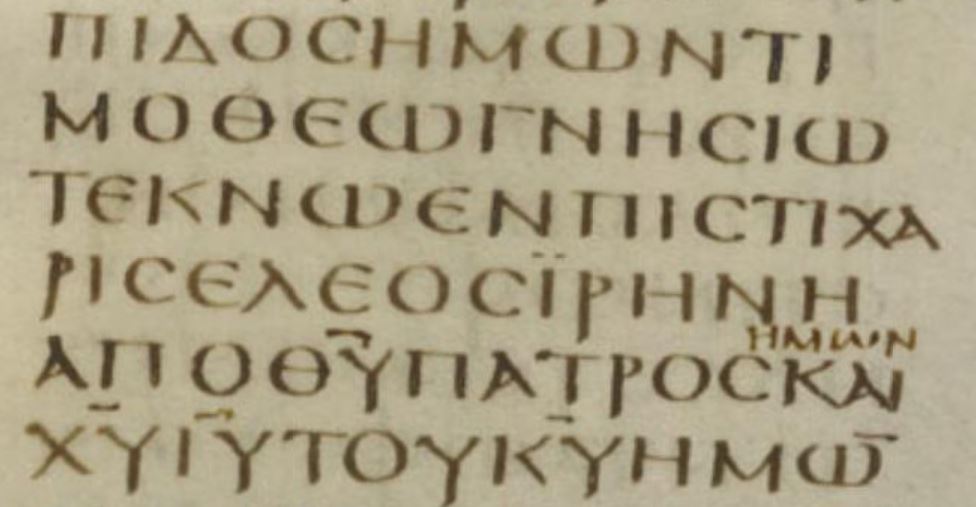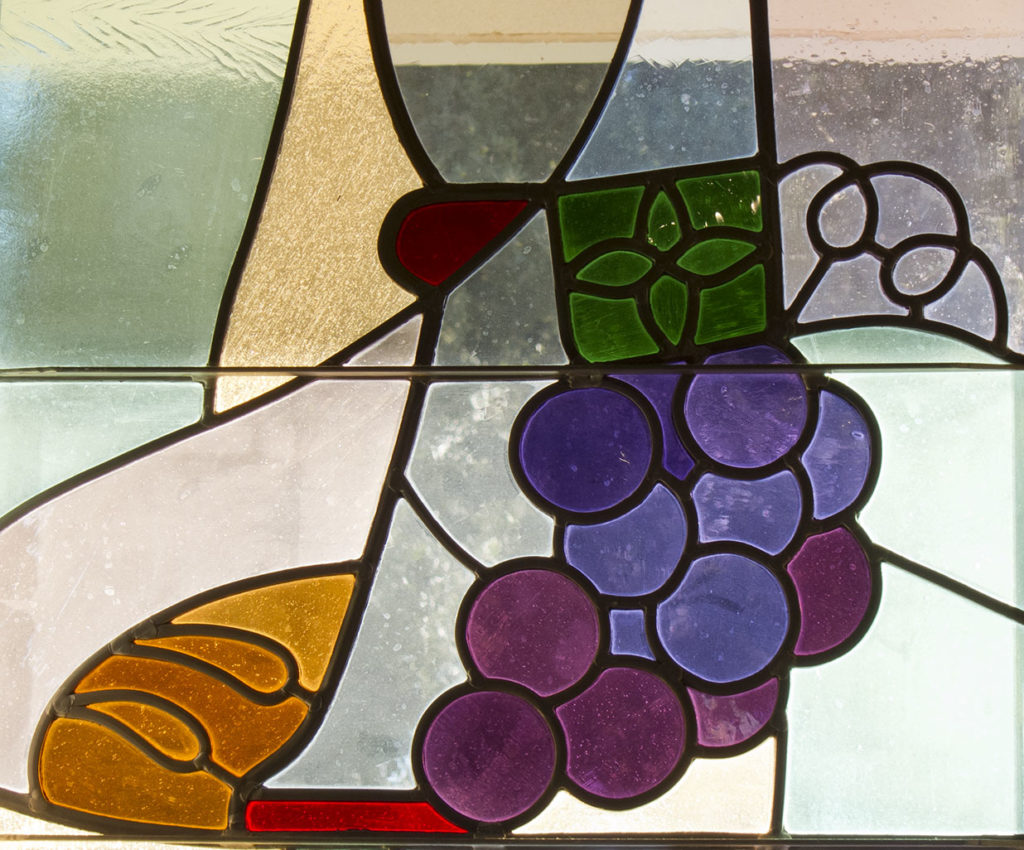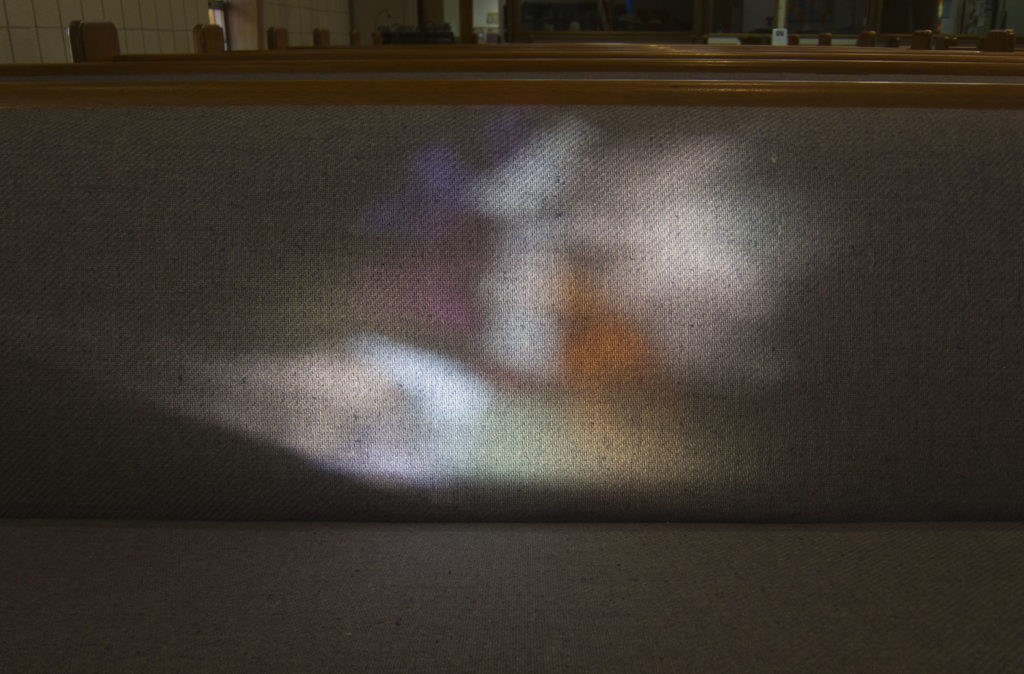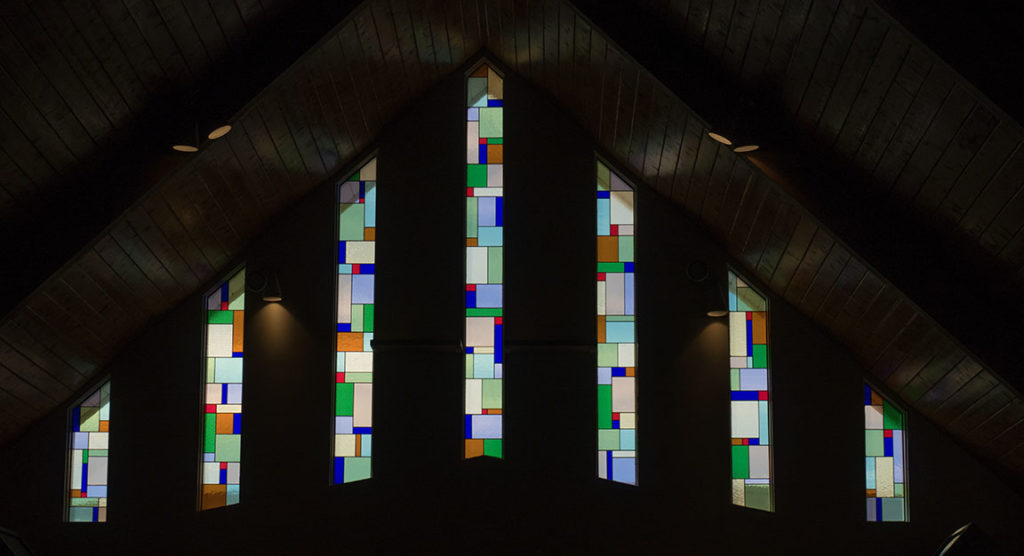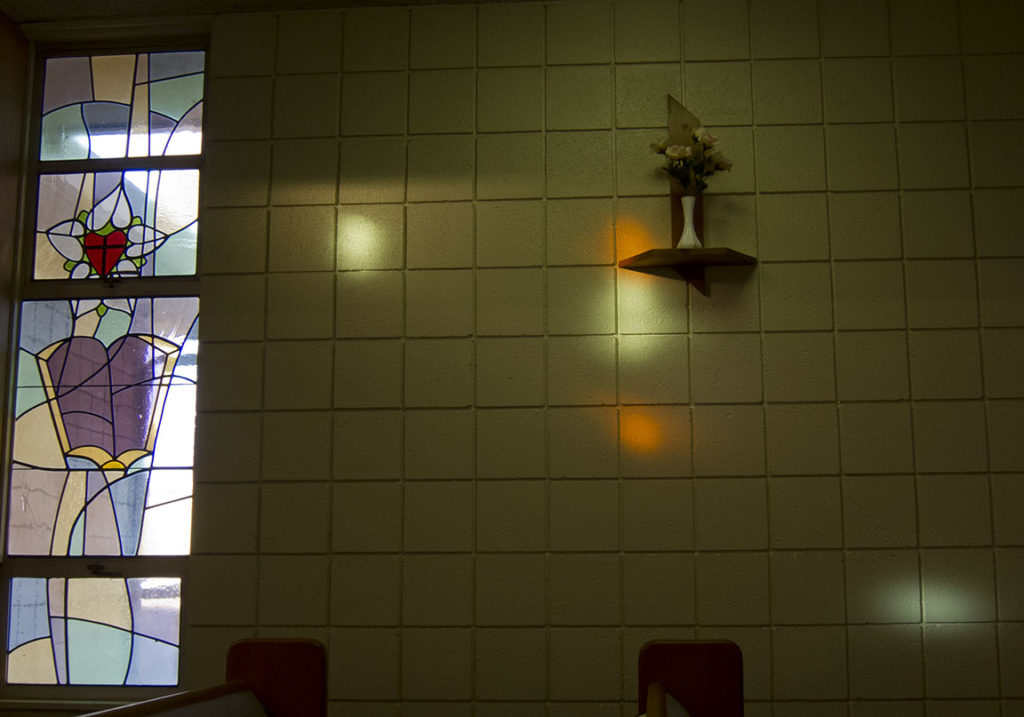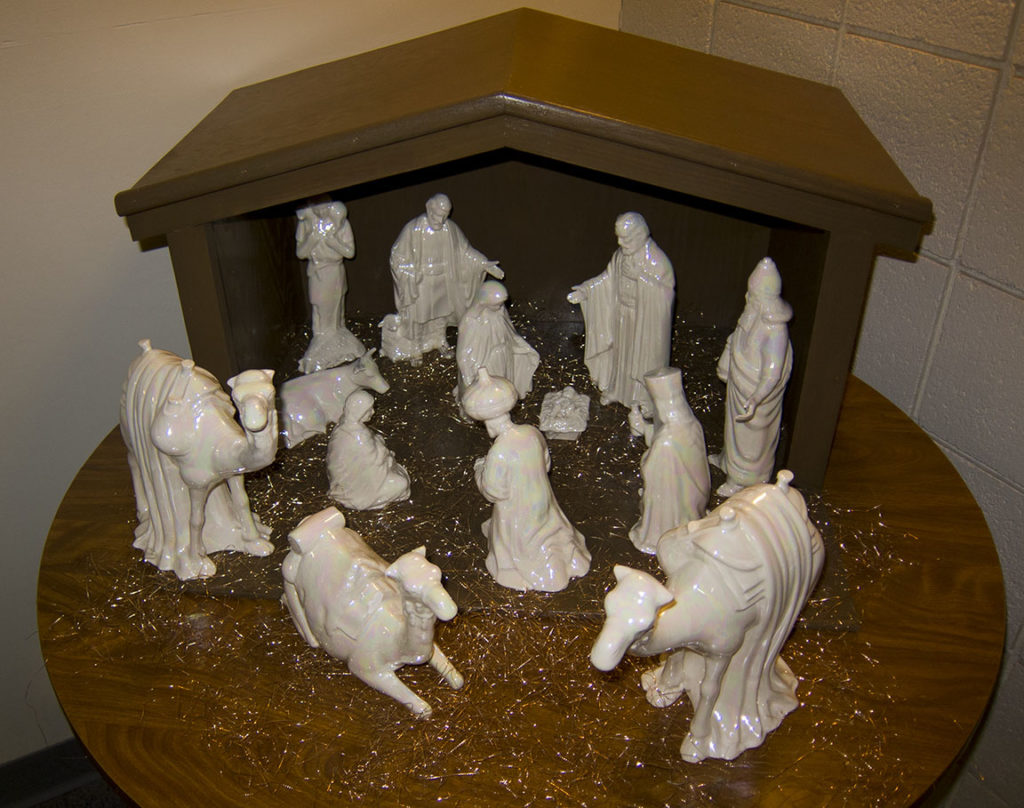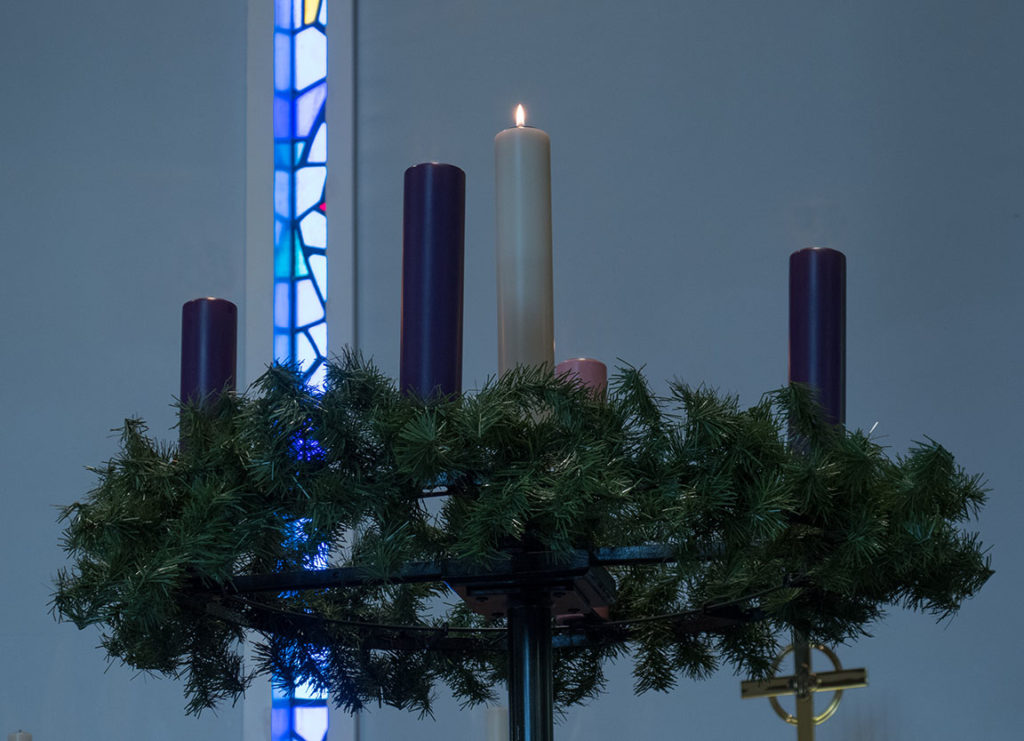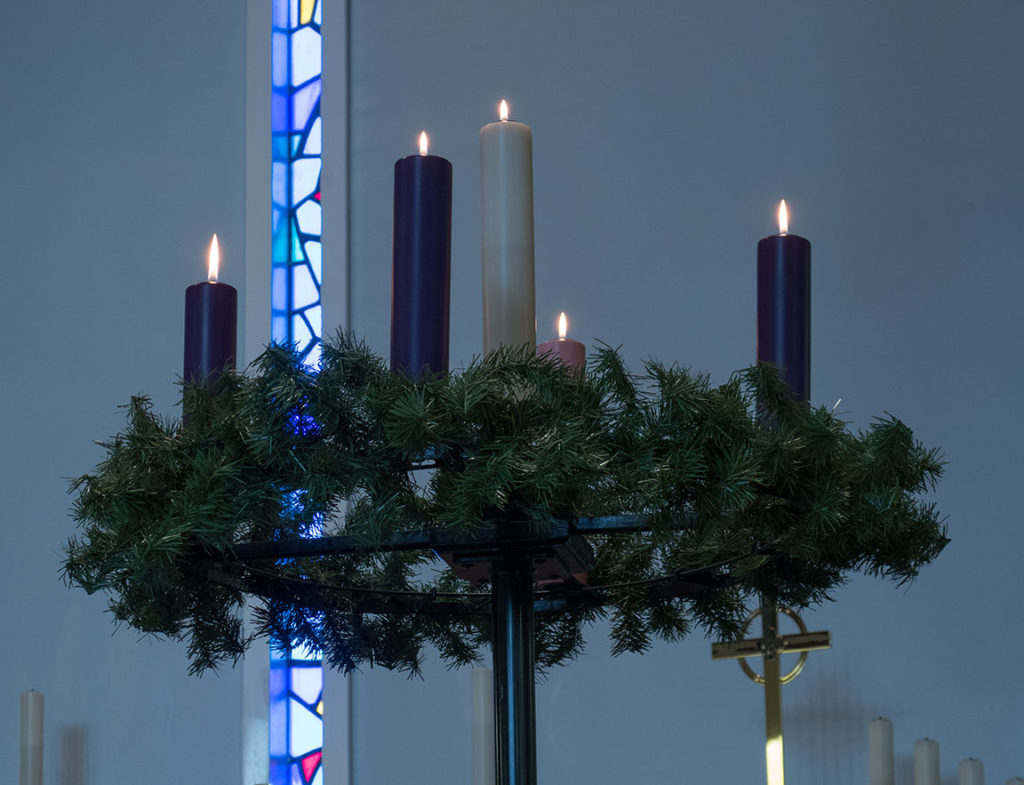Rev’d Mark B. Stirdivant, Good Shepherd Lutheran Church, Yucaipa, California
✝ sdg ✝
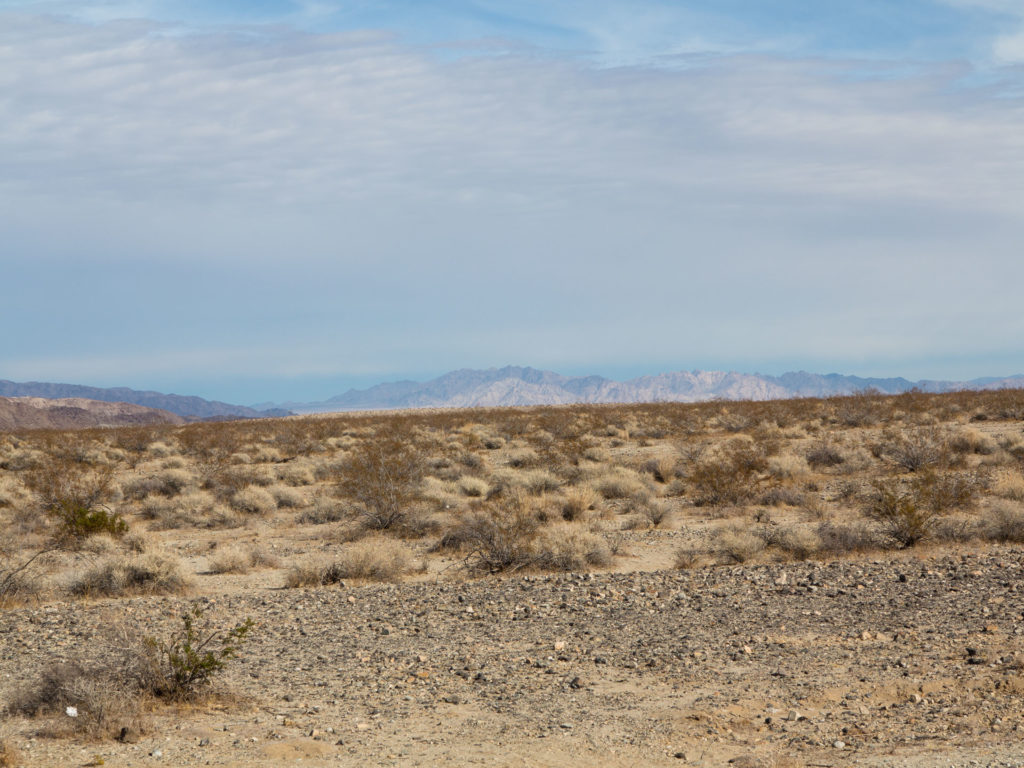
Joshua Tree
The Gospel of Mark uses very striking language. “The Spirit immediately drove [Jesus] out into the wilderness.” In the Greek original the phrase is more like, “He threw Him out.” Now, when Jesus was baptized just before this, and God the Father’s voice came out of heaven and said, “This is my Son, whom I love,” that was nice, wasn’t it? You would think that the Holy Spirit would be just as nice. I mean, God the Father, Son and Holy Spirit are all together and all in agreement. There is no division or conflict among the Holy Trinity, right? Remember that the Holy Spirit came down on Jesus in bodily form like a dove. So can you imagine what it would look like if this crazy bird was flapping around and pecking at our Savior’s head until He left the Holy Land for a walk in the wilderness; no meals included? That kind of kills the holy mood of that solemn occasion there with John in the Jordan River. Of course, despite the fact that it happened “immediately,” as Mark says, it is not necessarily true that the Holy Spirit had to stay in that particular dove form in order to drive Him into the desert, but it does make you think. And you should also keep in mind that Mark was inspired by the Holy Spirit Himself to write this account down for you in the Holy Bible.
Why would Jesus have to be “thrown out” into the wilderness? Wouldn’t He, as the perfect Son of God, willingly go in obedience to the heavenly Father? Why is the Holy Spirit so swift, so sudden, and so gruff with our Lord and Savior? And look at where Jesus has to go: a harsh desert with hardly any shade except some thin shrubs. He’ll be lacking food for 40 days, He’s out there with the wild animals (Mark has in mind the kind of animals that hunt you down and kill you), and of course, there’s the temptation by Satan, which isn’t described in any detail here like it is in Matthew and Luke. Good thing the angels were there to serve Him, but still, Jesus doesn’t deserve this. That’s at least how it looks to us reading about it. And yet, maybe the fact that Jesus does receive harsh treatment right after He was baptized—perhaps that helps explain what He really took on when that Jordan water came in contact with that Holy Body.
It’s like God the Father abandoned His own Son here too, early on in His mission, and not just at the cross, where we hear the familiar words quoted that Jesus quotes from the Psalms: “My God, my God, why have You forsaken Me?” Once His Baptism happened, the rubber met the road, that is, our Lord’s difficult task really started in earnest. You see, when you were baptized, your sins were taken away. When Jesus was baptized, your sins stuck on to Him, and He who knew no sin, became sin for us. And so, the only so-called “sinner” who never committed a sin Himself, He must face the temptations and struggles that you face, but that you could never handle on your own. And the time was right. The hour of salvation had arrived, as Jesus Himself said, “The time is fulfilled, and the kingdom of God is at hand.” Jesus’ mission to save the world from sin had to happen immediately, which is why the Holy Spirit had to throw Him out into the wilderness, dripping wet, as it were, from His baptism water.
What’s the wilderness like where God has led you lately? Probably not a whole lot of fun at times, I might guess. What wild animals are hunting you down for a snack? You may feel you don’t deserve this, or perhaps it’s more like, I don’t have time for this! Has Satan recently spoken to you through something enticing and desirable, and yet even with the veneer of possibly looking good and getting away with it? Perhaps you have deceived yourself sometimes into thinking you were beyond all this simple stuff, as if only new Christians have trouble struggling with it. Sure, you might have never doubted the Lord. You were brought up right. Others should follow your example more, so you might think.
But if you were honest with yourself, you would easily find within you that stubborn sinful nature. Often you hear it called by the name of Old Adam. That Old Adam was drowned first at your baptism, then again and again as each day you remember that holy washing when you confess your sins and receive forgiveness. Yet each day, this sinful nature of yours sets up his terrorist training camp within the borders of your very soul, so that you are constantly vulnerable for the devil’s assaults in this world that we live in now. Difficult situations, stress at work or school, illness or death of loved ones, and temptations constantly happen in your life. And you might even know that these things are used to drive you to the Lord and His Word so that He may strengthen you through them. But they feel so overwhelming at the time, so paralyzing, that you’d do anything, even give in to it all, just so your life would get just a little easier.
Do not fear. Though you may fall into these traps, your Lord Jesus Christ prevailed. He resisted Satan’s temptations. He braved the wild animals, and was obedient to God His Father even through 40 days’ worth of hunger. All this He did after He soaked up your sins into His flesh. He bore your burden through the forbidding desert so that He could lead you safely to the promised land of heaven. For it isn’t your good intentions, or keeping your promises to do better or your attempts to please God that will ever count. What counts is what Christ has done for you, starting from the very moment after He was baptized and the Holy Spirit threw Him out to start rescuing you. There was not a moment to lose, and you should remember that the next time you think you can put off your prayers for His strength and guidance in your life. After all, He did take the time to teach you to pray those very words: and lead us not into temptation, but deliver us from evil (which also includes Satan, the Evil One).
At times you will feel overwhelmed, but you need not fall for what your feelings tell you. Remember what you have heard from God’s Holy Word, the Word that can never lie, and that will never change: Jesus faced it all ahead of you, and was obedient to the point of death, even death on a cross. His blood that cried out for nourishment at the end of 40 days of fasting was the same holy Blood that stained His thorny crown and dripped down the cross. One drop of that precious blood is able to pay for the sins of the whole world, and yet He poured it out for your forgiveness. He still pours out that Blood into the cup of Holy Communion, the chalice that is shared by all who believe in full agreement and are joined together in the One Body of Christ. And since Jesus has joined you to Himself, as branches are joined to the vine, God the Father does not see your sins any longer, but rather He sees the perfection of His own Son, counted in your favor. He hears your prayers as if Jesus Himself were speaking them, for that is really what is happening when you pray.
There may have been a moment where there appeared to be conflict between God the Son and God the Holy Spirit, since Jesus was thrown out into the wilderness right after His baptism to begin His ministry. For sure today, and until our Lord returns, conflict will come and go among the Church Militant here on earth, just as there is conflict raging within each Christian between the sinful nature and the new creation that has now been planted inside you. Yet it all happens while this message is preached, “Repent and believe in the gospel.” This is the message that brings to you the Body of Christ, it is making you together to be the Body of Christ, so that even to this very day, the voice of the Father that spoke at Jordan River applies to you, saying “You are my beloved Son; with you I am well pleased.” And the same Holy Spirit who first drove Jesus into the wilderness, will strengthen and comfort you in whatever wilderness you may face.
In the Name of the Father and of the ✝ Son and of the Holy Spirit.
Readings:
Gen. 22:1–18 Take now your son, our only son Isaac … your descendents as the stars of heaven
Ps. 25:1–10 To You, O LORD, I lift up my soul.
James 1:12–18 every perfect gift is from above
Mark 1:9–15 baptized by John in the Jordan Repent and believe in the gospel





